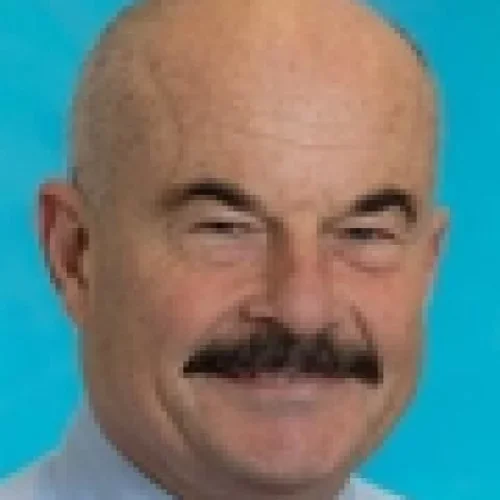
James N. Weiss, MD
Distinguished Professor, Medicine; Distinguished Professor, Physiology; Kawata Endowed Chair in Cardiology; Director, UCLA Cardiovascular Research Laboratory; Chief, Division of Cardiology
About
James N. Weiss received his undergraduate degree in physics from Hamilton College, and his medical degree and internal medicine training at the University of Pennsylvania School of Medicine. He completed his cardiology fellowship at the University of California, Los Angeles in 1981, including clinical electrophysiology training at the University of Maastricht, the Netherlands. He then joined the faculty at the UCLA School of Medicine, where he was director of Clinical Cardiac Electrophysiology from 1981-1985. He became the first holder of the Chizuko Kawata Endowed Chair in Cardiology in 1993, the Director of the Cardiovascular Research Laboratory in 1997, the Chief of Cardiology in 2001, and is currently Distinguished Professor of Medicine and Physiology. From a background in ion channel biophysics and basic and clinical cardiac electrophysiology, he currently leads an interdisciplinary group which combines mathematical and experimental biology to develop innovative techniques to treat cardiac arrhythmias, to prevent injury from heart attacks and to understand the genetic basis of heart disease using systems biology approaches. He has directed a National Institutes of Health Specialized Center of Research in Sudden Cardiac Death from 1995-2005, since continued as a National Institutes of Health Program Project Grant, and several other grants. He has published over 300 articles and holds memberships in numerous professional organizations, including the American Heart Association, American College of Cardiology, the Heart Rhythm Society, the American Society of Clinical Investigation, and the Association of University Cardiologists.
Research Interests:
Dr. Weiss's current research utilizes systems approaches integrating experimental biology at the molecular to organ levels with mathematical modeling and nonlinear dynamics to investigate the following areas:
1. Arrhythmia biology (with Peng-Sheng Chen, MD, Alan Garfinkel, PhD, Scott John, PhD, H. Karagueuzian, PhD, Thao Nguyen, MD, PhD, Riccardo Olcese, PhD, Zhilin Qu, PhD). The mechanisms of ventricular and atrial fibrillation are being studied using interdisciplinary experimental and mathematical approaches. The experimental component uses high resolution multielectrode and optical arrhythmia mapping in intact tissue and monolayers, and patch clamp and fluorescent dye studies in isolated cells. The theoretical component integrates nonlinear dynamics (including chaos theory) with computer simulations of spiral and scroll wave reentry in 2D and 3D cardiac tissue. The goal is to use insights from nonlinear dynamics to develop novel gene-, pharmacologic- and pacing-based therapeutic strategies.
2. Ischemia biology and cardioprotection (with Paavo Korge, PhD, Guillaume Calmettes, PhD, Peipei Ping, PhD). Viewing cardiac metabolism as a network of interlinked pathways (glycolysis, glycogenolysis and oxidative phosphorylation) regulated by multiple protein kinase signaling pathways, our goal is to integrate experimental and mathematical approaches to understand global system-wide responses of metabolism to stresses such as ischemia/reperfusion. A major focus is on the role of the mitochondrial permeability transition (MPT) in ischemia/reperfusion injury and cardioprotection, using biochemical and imaging techniques in isolated mitochondria and cardiac myocytes, as well as proteomic approaches in collaboration with the Ping laboratory. Major goals are to understand the mechanism by which mitochondrial ATP-sensitive K channel agonists, signaling by protein kinases and ROS, and metabolic pathways are cardioprotective, and to investigate the role of metabolic oscillations in accelerating cell death.
3. Systems genetics (with Mario Deng, MD, Alain Karma, PhD; Jake Lusis, PhD, Yibin Wang, PhD). Using the hybrid mouse diversity panel as an experimental genetics model, we are integrating network theory, bioinformatics and computational modeling to investigate how the expression patterns of groups of genes (gene modules) influence phenotypic responses to environmental stresses. We are exploring the potential of this novel approach, which we call Gene Module Association Study (GMAS) as an alternative to Genome Wide Association Study (GWAS) for analyzing the genetic basis of common polygenic diseases.
Honors and Awards
- 2014 Archibald Byron Macallum Lectureship, Department of Physiology, University of Toronto
- 2011 Gordon Research Conference on Cardiac Arrhythmia Mechanisms, elected Chair
- 2010 Douglas P. Zipes Lectureship Award, Heart Rhythm Society and Cardiac Electrophysiology Society
- 2009 Mayo Soley Award, Western Society of Clinical Investigation,
- 2009 Gordon Research Conference on Cardiac Arrhythmia Mechanisms, elected Vice Chair
- 2008-present Super Doctors of Southern California
- 2005-2016 NIH Program Project Director
- 2004 Pfizer/American College of Cardiology Foundation Visiting Professor in Cardiovascular Medicine, New York University School of Medicine
- 2002 Pfizer/American College of Cardiology Foundation Visiting Professor in Cardiovascular Medicine, Vanderbilt University School of Medicine
- 2002 Basic Science Council State-of-the-Art Research Lecture, American Heart Association Scientific Sessions
- 1998-2008 NIH Training Grant Director
- 1998-2008 NIH MERIT Award
- 1998, 2001, 2005 UCLA Cardiology Fellows Teaching Award for Best Research Mentor
- 1997, 2000, 2002, 2007 Full-time Faculty Teaching Award nominee, UCLA Department of Medicine Housestaff
- 1997 Distinguished Scientific Achievement Award, American Heart Association, Greater Los Angeles, Affiliate
- 1995-2004 NIH SCOR Director
- 1994 Elected to Association of University Cardiologists
- 1991 Elected to American Society for Clinical Investigation
- 1987 1991 NIH Research Career Development Award
- 1985 Elected to Western Society for Clinical Investigation
- 1983 86 NIH New Investigator Research Award
- 1983 86 NIH New Investigator Research Award
- 1974 Alpha Omega Alpha
- 1971 Southworth Prize in Physics, Hamilton College
- 1969 Phi Beta Kappa
Research Interests & Expertise
- Arrhythmia biology
- Ischemia biology and cardioprotection
- Systems genetics
Department: Physiology